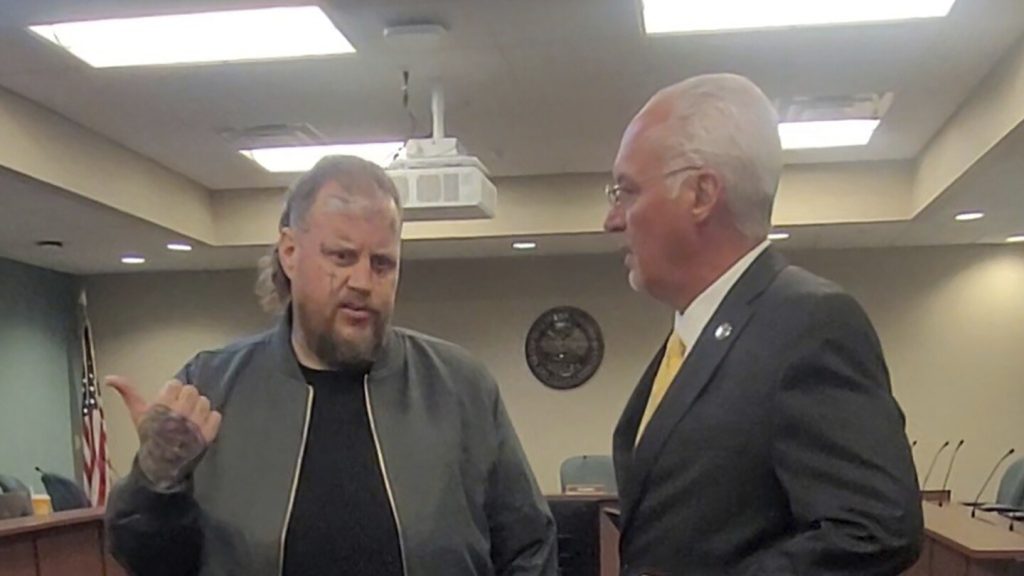Pardon Recommendation for Country Music Star Jelly Roll
NASHVILLE, Tenn. (AP) — The Tennessee Board of Parole has recommended a pardon for country music artist Jelly Roll, a native of Nashville known for openly addressing his past criminal behavior and his journey to overcome it. The final decision on the pardon now rests with Governor Bill Lee.
Jelly Roll’s Aspirations
The rapper-turned-country singer aims to travel internationally to share his message of redemption following a period of incarceration during his youth. His desire for a pardon is driven by the ambition to perform abroad.
Board Proceedings and Support
The board made its unanimous, nonbinding recommendation after a hearing lasting approximately an hour and 45 minutes, where several witnesses, including Nashville Sheriff Daron Hall, offered their support for the 40-year-old musician, Jason DeFord. One board member abstained from voting.
Jelly Roll’s Musical Success
Jelly Roll gained recognition in the country music scene with his 2023 album “Whitsitt Chapel” and popular tracks like “Need a Favor.” He has secured numerous accolades, including several CMT Awards, a CMA Award, and four Grammy nominations, notably for the category of new artist of the year.
Acknowledgment of Past Mistakes
Among his most serious legal troubles are a robbery charge at age 17, where he participated in a crime that led to his arrest, and drug possession charges at 23, resulting in eight years of court-mandated supervision. He also carries two misdemeanor charges for driving without a license and possession of drug paraphernalia.
Governor’s Perspective on Clemency
Governor Lee, a Republican, remarked that each clemency case, including pardons, is treated with importance and subjected to a careful review process. He noted that while the board’s recommendation for Jelly Roll is promising, there are still steps to be taken.
Message of Redemption and Future Goals
During his appearance before the board, Jelly Roll expressed how songwriting helped him find direction in life while in detention. He actively engages in community service, often visiting jails and shelters. He hopes to use a pardon not only for touring purposes but also to carry on missionary work later in life. He expressed that his criminal record complicates international travel, requiring extensive legal preparation and paperwork.



